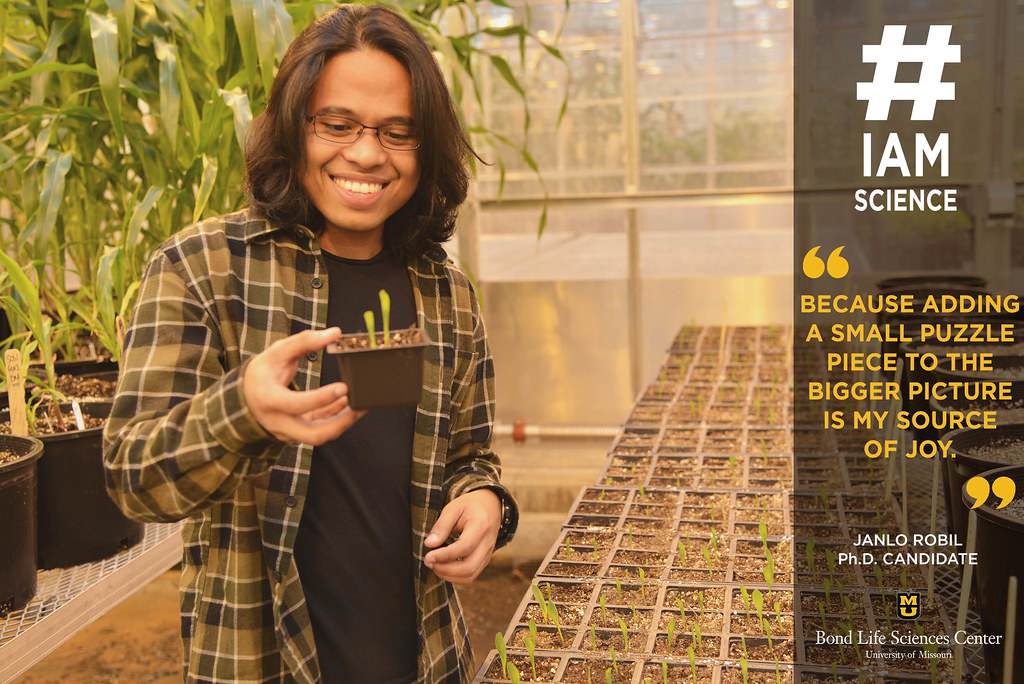
By Allison Scott | Bond Life Sciences Center
“#IAmScience because adding a small puzzle piece to the bigger picture is my source of joy.”
Janlo Robil found himself with a difficult decision when he entered a master’s program at Ateneo de Manila University in the Philippines.
His passion for insects made him want to pursue entomology, but the lack of coursework in the area made him consider other options. Not wanting to put off his studies for another year, Robil took a course called Plant Microtechnique. After that, he was hooked, a weird place to be for someone with no prior interest in plants.
“I found myself amazed by the diversity and intricacy of plant cells and tissues,” Robil said. “And studying these structures in the laboratory was even more interesting.”
From there, his passion only grew. It led him to apply for and be accepted as a Fulbright Scholar — a prestigious exchange program that allows recent graduates to pursue further education in over 140 countries. He chose to attend Mizzou over Iowa and North Carolina because of its strength in plant sciences.
Now, a year and half into a five-year Ph.D. program in plant developmental genetics, Robil works in Paula McSteen’s lab at Bond LSC.
“I was drawn to her research because it encompasses the areas of biology that I am truly fascinated by: plant morpho-anatomy, developmental biology and genetics,” Robil said. “For me, working in the McSteen lab is a unique opportunity to explore fundamental biological questions using an excellent model system, maize.”
Robil studies corn as a key component of his dissertation.
“The overarching theme of my dissertation is the role of plant hormone auxin in vein development and patterning in maize leaf,” Robil said. “I am interested on how the dynamics of auxin shape the formation and density of veins during different steps of leaf development.”
He chose this topic because of how influential it is to a variety of areas of science.
“This research is important to both fields of developmental biology and physiology because optimized density and spacing of leaf veins in C4 crops like maize is a key requirement for their efficient metabolism and productivity even in arid conditions.”
Robil is also able to better his home country while studying at Mizzou.
“Because Philippines is a developing country, conducting basic research is a luxury and we try to focus most of our resources to applied research.” Robil said. “The United States houses the opportunity to explore the basic side of research, which provides the foundation for applied research in the future.”
At Bond LSC, Robil has been able to take his research to the next level.
“I value the collaborative and interdisciplinary atmosphere here,” Robil said. “You can find experts from a variety of disciplines that you can consult or work with to find answers to your research problems.”
Those insights have helped Robil grow as a researcher and work toward his dream of helping alleviate world hunger. While that’s no small task, he tries to take it one day at a time.
“Never lose the wonder of discovery,” Robil said. “It may not always be that novel or significant, but discovering new things should be considered a personal success.”

